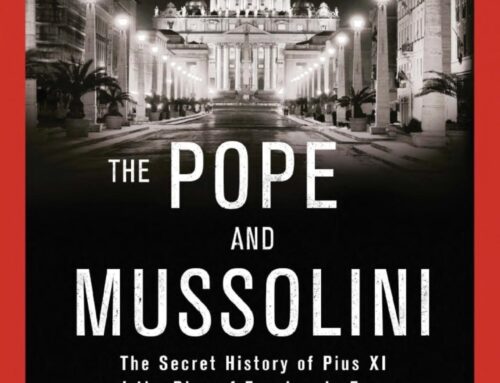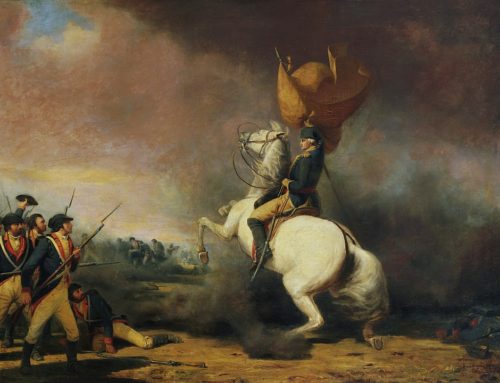Introduction
I am reading Ron Chernow’s Biography of Ulysses Grant. Needless to say, this biography provides a fantastic positive insight into one of America’s greatest generals. While Grant suffered from alcoholic demons, he possessed incredible talents—a pervasive understanding of military theory and practicalities, fantastic empathetic facilities, extremely focused, and a true gentleman.
While I cannot add at this time to his role as President, I can say without a shadow of a doubt that Grant was comparable to Lee as a General. Furthermore, because Grant had responsibility for General Thomas in Tennessee, Sheridan in the Shenandoah, Sherman in the Southeast, Grant had far more responsibility that Lee.
Important Points
The United States, The South, and the World have benefitted from the Union Victory. The Northern Victory ushered in an industrial revolution that catapulted America to becoming the top global power. A position we have held for over 100 years.
Moreover, a Confederate Victory would have probably led to a relatively loose confederation of remaining states, and possibly other regions demanding independence. For the South to prosper they needed to shed their agricultural dependence. Frankly, not until after World War II and possibly the Korean War, did the South really embrace the technological and industrial changed of the rest of the country. As a Confederacy, there is likelihood that the Southern economy would more resemble Latin America than North America.
In terms of the Globe, our world would be far inferior and sinister without America being the Champion of Democracy, Free Trade and Capitalism. A weakened America could not have overcome either Fascism or Communism.
Costs of the Civil War
Let us put the Civil War in perspective. As a percentage of US population, the Civil War cost 7 times the number of Americans died than in World War II. I suffer from growing up in the South, which portrayed Southern generals in the most positive light—demigods; while the North highlighted the high number of Union deaths. Southern generals were classified as gentleman. Grant and Sherman were never given credit for the civil treatment of Southerners when Robert Lee and Joseph Johnson surrendered. Grant who had tremendous admiration for Lee despite feeling that Lee had labored for a terrible cause totally altered his approach in getting Lee to surrender. That is, instead of being hard nose “Unconditional Surrender” Grant he was very lenient. It is my personal belief that Grant, Sherman and Lincoln had the correct approach of welcoming back their wayward sisters rather than imposing treasonous penalties on their Southern adversaries. We need to remember that one-fourth of white Southerners of military age died during the Civil War.
Should the Union have taken punitive action against leaders of the Confederacy?
The North had two divergent philosophies toward the South. For a time, the prevalent attitude was Radical Republicans led by Senator Charles Sumner and Representative Thaddeus Stevens. They wanted to impose harsh penalties on the South including military occupation. By contrast, William Sherman and President Andrew Jackson held lenient views. In the middle was General Grant.
Draconian measures against the South would have ultimately led to a Free State of Ireland rather than a United States.
I should remind you that Lee’s adversaries at the time (Grant, Lincoln, Sherman, and the Northern populace) all respected Lee immensely. In fact, only one Confederate-the prison warden at Anderson Prison camp–was executed. We should wonder whether our holier than thou attitude toward Confederacy in the North is compatible with the benign attitude toward the South held by Northerners until relatively recently. For example, when I went to camp in the mid 1950’s my fellow campers from the Border States almost uniformly held Pro-Southern views. Yankees never denigrated Southerners but admired Southern culture. The denigration of Blacks was never mentioned either at camp, or Andover, Exeter, and Culver. In fact, I can recall only one African-American attending these institutions during my stay.
While Republicans waved the “Red Flag” until 1876, as early as 1868 there was a strong feeling within the North of sympathy for the South. After two years of imprisonment, Davis was released on bail of $100,000, which was posted by prominent citizens including Horace Greeley, Cornelius Vanderbilt and Garret Smith (A former supporter of John Brown). As early as 1873, Northerners became apathetic to Black Rights, allowing militant (Ku Klux Klan) elements of the South to contest Negro enfranchisement. In the compromise of 1877 leading to the Presidency of Rutherford B. Hayes, Southern leaders regained all of their lost rights. This led to Jim Crow in the Confederacy until the 1964-1965 Civil Rights Acts.
Should have the Confederacy been allowed to treat Blacks as Second Class Citizens?
From a moral perspective, definitely not. Martin Luther King reminded us that Blacks were given an unfunded check for over 100 years. From a practical perspective, American racism until recently readily accepted Southern mores. There was no will power outside the South to uphold Black rights. In truth, the South had de jure Segregation; the North had de facto Segregation. There is much attention to the decision by the Daughters of the American Revolution in1930 to bar Marian Anderson singing in their hall (Constitution Hall). There is no publicity that the Metropolitan Opera did not allow a Black singer until the 1950’s. Princeton did not integrate until after World War II. The Naval Academy did not integrate until the end of World War II. The teaching that Blacks were intellectually inferior lasted until the 1920’s. Teddy Roosevelt and Howard Taft felt that Blacks would not achieve equality with Whites for 1000 years!
Interestingly enough, both Julia Grant and Mary Lincoln came from affluent slave-holding families. Their siblings remained loyal to the Confederacy. Through marriage, both Grant and Lee were slaveholders. Both of these men gave their slaves freedom. While conflicted, Julia Grant and Mary Lincoln primary loyalty was to the North. President Andrew Jackson did not give up his slaves until late in 1863.
Correspondence between General Lee and General Grant near the end of the Civil War of the United States.
Desperate as the situation had become, and irretrievable as it seemed hourly growing, General Lee could not forego the hope of breaking through the net that was rapidly enclosing him and of forming a junction with Johnston. In the event of success in this he felt confident of being able to manoeuvre with Grant at least until favorable terms of peace could be obtained.
A crisis was now at hand. Should Lee obtain the necessary supplies at Appomattox Court-House, he would push on to the Staunton River and maintain himself behind that stream until a junction could be made with Johnston. If, however, supplies should fail him, the surrender and dissolution of the army were inevitable. On the 8th the retreat, being uninterrupted, progressed more expeditiously than on the previous day. Yet, though the Federals did not press the Confederate flank and rear as on the day before, a heavy column of cavalry advanced upon Appomattox Station, where the supplies for the Confederate army had been deposited.
On the preceding day a correspondence had begun between the two commanding generals, opening in the following note sent by General Grant to General Lee:
“HEAD-QUARTERS ARMIES OF THE U. S.,
“5 P. M., April 7, 1865.
“GENERAL R. E. LEE, COMMANDING C. S. A.
” GENERAL,–The results of the last week must convince you of the hopelessness of further resistance on the part of the Army of Northern Virginia in this struggle. I feel that it is so, and regard it as my duty to shift from myself the responsibility of any further effusion of blood, by asking of you the surrender of that portion of the Confederate Southern army known as the Army of Northern Virginia.
” Very respectfully, ” Your obedient servant, ” U. S. GRANT,
“Lieutenant-General commanding Armies of the U. S.”
To which General Lee replied,–
“April 7, 1865. “GENERAL,–I have received your note of this day. Though not entertaining the opinion you express on the hopelessness of further resistance on the part of the Army of Northern Virginia, I reciprocate your desire to avoid useless effusion of blood, and therefore, before considering your proposition, ask the terms you will offer on condition of its surrender.
” R. E. LEE, ” General. ” LIEUTENANT-GENERAL U. S. GRANT, commanding the Armies of the United States.”
On the succeeding day General Grant returned the following reply:
“April 8, 1865.
“TO GENERAL R. E. LEE, COMMANDING C.S.A.
“GENERAL, — Your note of the last evening, in reply to mine of the same date, asking the condition on which I will accept the surrender of the Army of Northern Virginia, is just received. In reply I would say that, peace being my great desire, there is but one condition I would insist upon, — namely, that the men and officers surrendered shall be disqualified for taking up arms again against the government of the United States until properly exchanged. I will meet you, or will designate officers to meet any officers you might name for the same purpose, at any point agreeable to you, for the purpose of arranging definitely the terms upon which the surrender of the Army of Northern Virginia will be received.
“U. S. GRANT,
“Lieutenant-General.”
General Lee immediately responded:
“April 8, 1865.
“GENERAL, — I received at a late hour your note of today. In mine of yesterday I did not intend to propose the surrender of the Army of Northern Virginia, but to ask the terms of your proposition. To be frank, I do not think the emergency has arisen to call for the surrender of this army, but, as the restoration of peace should be the sole object of all, I desired to know whether your proposals would lead to that end. I cannot, therefore, meet you with a view to surrender the Army of Northern Virginia, but as far as your proposal may affect the Confederate States forces under my command and tend to the restoration of peace, I should be pleased to meet you at ten A. M. to-morrow on the old stage-road to Richmond, between the picket-lines of the two armies.
“R. E. LEE,
“General.
“LIEUTENANT-GENERAL GRANT.”
When Lee in the afternoon reached the neighborhood of Appomattox Court-House, he was met by the intelligence of the capture of the stores placed for his army at the station two miles beyond. Notwithstanding this over-whelming news, he determined to make one more effort to force himself through the Federal toils that encompassed him. Therefore he made preparations for battle, but under circumstances more desperate than had hitherto befallen the Army of Northern Virginia. The remnant of that noble army, now reduced to ten thousand effective men, was marshalled to cut its way through a host seventy-five thousand strong; but, notwithstanding the stupendous odds, there was not in that little band a heart that quailed or a hand that trembled; there was not one of them who would not willingly have laid down his life in the cause they had so long maintained, and for the noble chief who had so often led them to victory.



